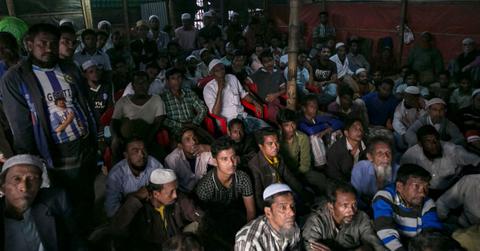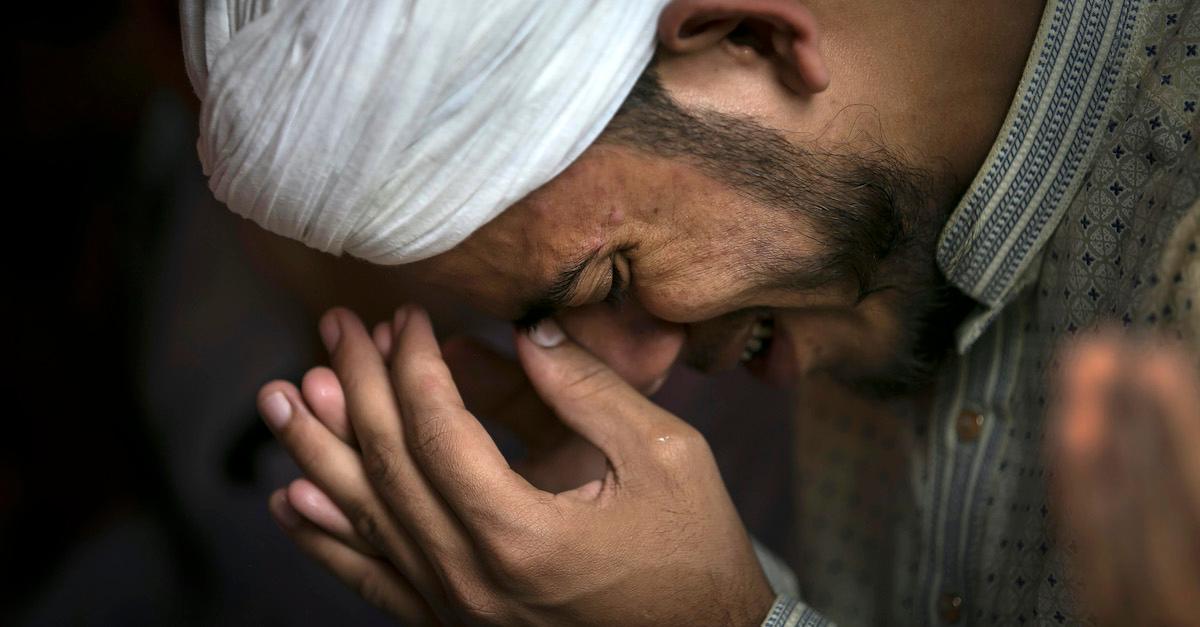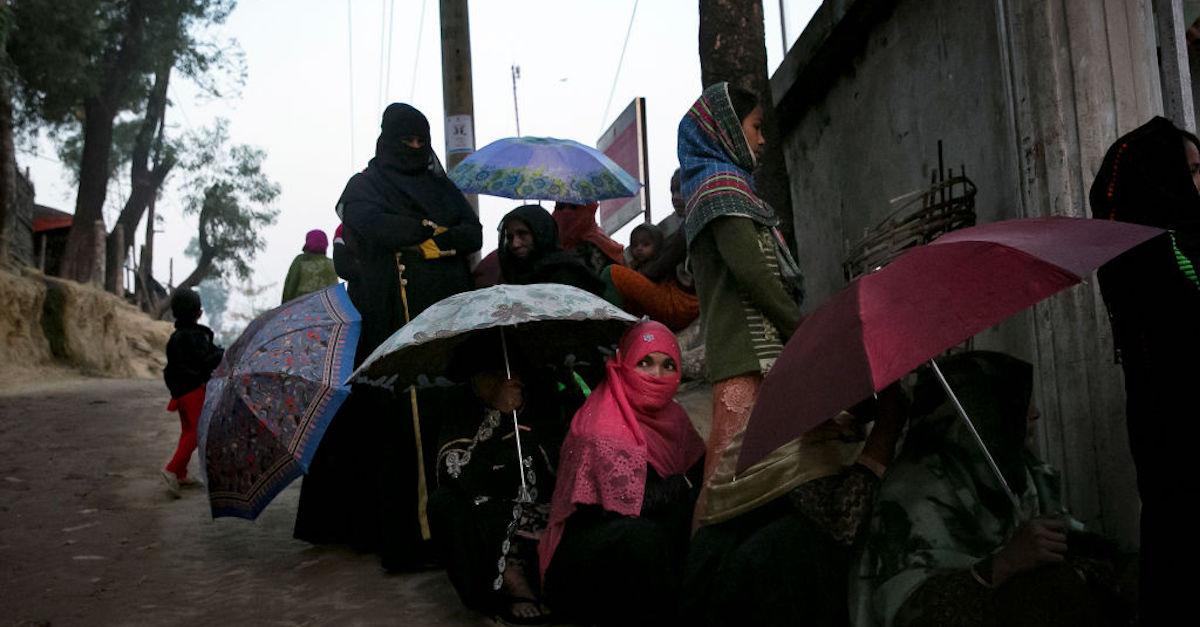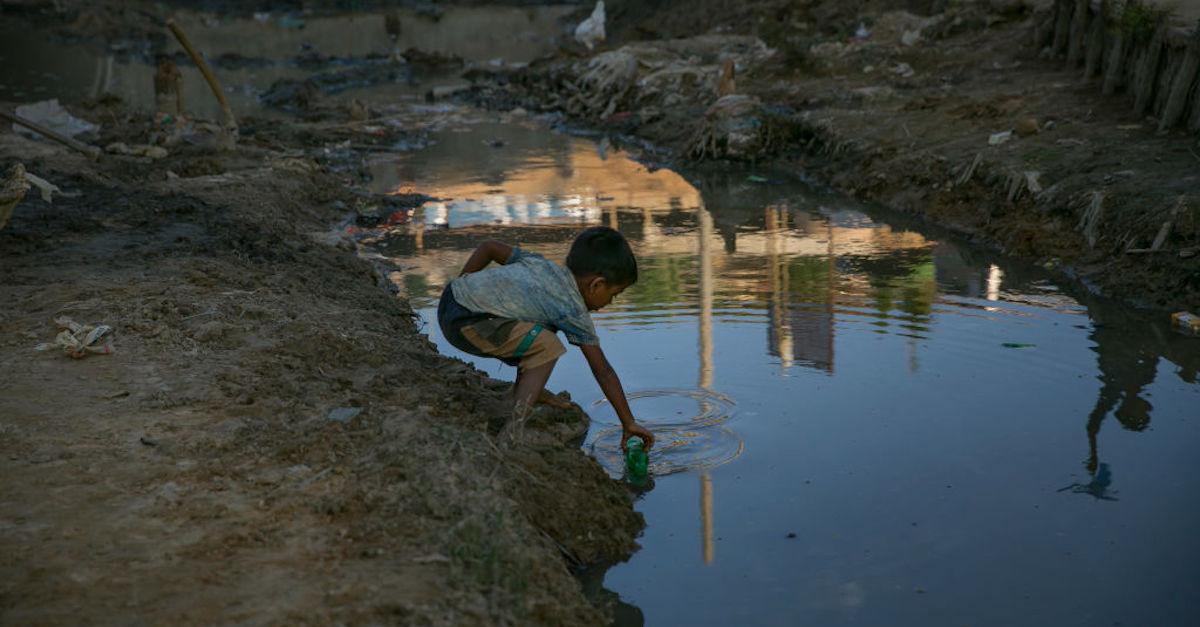Rohingya Refugee Crisis Forces Thousands Of Families to Dangerous, Uninhabited Island
Updated Dec. 21 2020, 4:08 p.m. ET

One of the most devastating examples of ongoing genocide is currently taking place in the Southeast Asian country of Myanmar, where a marginalized group of people called the Rohingya people have been suffering from the effects of "ethnic cleaning" for many years. Now, they are being relocated to a potentially unsafe island off the coast of Chattogram, which will likely pose serious environmental and human rights risks.
Keep reading for more regarding the ongoing Rohingya refugee crisis, why the Rohingya people are currently being relocated from their Myanmar homes, and how you can help the cause.

Who are the Rohingya people? Behind Myanmar's marginalized population.
The Rohingyas are the largest group of muslims in Myanmar, accounting for approximately 1 million people. But according to BBC News, the country's main religion is Buddhism, and therefore, the Rohingyas face major discrimination. The Rohingyas speak their own language, and claim to be Arab descendants of traders and other native groups, though Myanmar's government refuses to grant them citizenship, viewing them as "illegal Bangladesh immigrants."
Most of the Rohingya people live in Myanmar's Rakhine state, but for the last 40 years, they have become increasingly more nomadic, migrating from place to place to escape abuse from authority officials, as per BBC. There are definitely more Rohingya people than recorded numbers, as they were excluded from the country's 2014 census, but many are now trying to escape the country because of insufferable amounts of violence nationwide.

The Rohingya people are being forcefully relocated, posing environmental and human rights issues.
On Dec. 4, almost 2,000 Rohingyas were relocated to an island in the Bay of Bengal called Bhasan Char, about 19 miles off the Myanmar coast, as per EcoWatch. The country plans to send 98,000 more Rohingya families to the previously uninhabited island, which only surfaced within the last two decades from silt deposits overflowing from the Brahmaputra, Ganges, and Meghna Rivers. Because it's low-lying and in the middle of water, inhabitants are expected to face floods and cyclones.
In addition to environmental concerns, Myanmar's government claims refugees "volunteer" to move to Bhasan Char, while human rights groups assert that many families were threatened, bribed, or forcefully sent to Bhasan Char. The government also claims the people will have freedom, and access to basic human rights such as shelter, food, medicine, and education, though it seems like that may not be the case, as many have already reported cases of abuse and poor living conditions.
Daniel Sullivan from Refugees International told EcoWatch: "Serious questions remain unanswered about the physical safety of the island and the ability to provide adequate food, health, and protection services without proper assessments and planning with UN agencies and NGOs. Some of the 300 refugees already on the island have already reported abuse by authorities and have been unable to reunite with family in the main camps."

How can we help the Rohingya refugees?
Many hope the Biden Administration will take measures to curb violence against Myanmar's Rohingya, instill peace, and return the population to their home country. Biden has acknowledged the subject, as per EcoWatch, saying: "the systematic discrimination and atrocities against Burma's Rohingya Muslim minority is abhorrent and undermines peace and stability."
But aside from hoping for the best from Biden, there are ways to directly help. As per The New York Times, BRAC is a Bangladesh-based organization that primarily on Rohingya women's health, education and protection, while the UN's IOM is a migration agency that provides camps with healthcare and sanitation, and trafficking protection to girls and women. Doctors Without Borders and UNICEF also work to help the the Rohingya. There are many organizations out there, so do the research to do your part effectively.
The Rohingya crisis is absolutely devastating, and it seems like the recent "relocation" is far worse than it sounds — therefore, advocating for their freedom is vital.